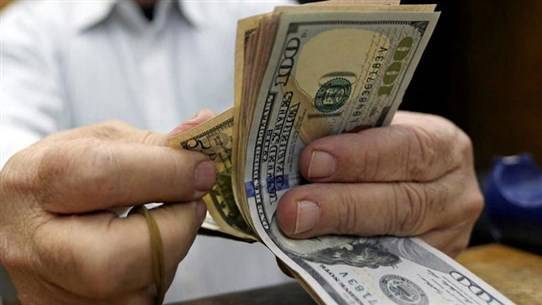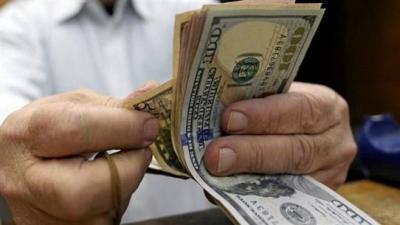Lebanese people, on the brink of the Christmas and New Year season, facing the deterioration of their financial situation and abject poverty, have been hit with the announcement from Finance Minister Youssef Khalil that the ministry issued a letter to the Central Bank regarding the implementation of foreign currency prices for taxes and fees collected by the customs department on imported goods, based on an exchange rate of 15,000 Lebanese pounds to the US dollar starting from December 1, 2022. While Khalil indicated that "the measure helps to limit the exploitation of price differences and to reduce distortions and losses incurred by the treasury," the Lebanese are questioning who will alleviate their losses and the distortions affecting the impoverished majority.
Why was the timing of the implementation of the customs dollar, which has significant financial repercussions for them, set on the eve of the holidays instead of waiting until after? Is it to further deprive them of a rare joy, under a ruling system that has taken them from comfort to hell? Is it to cover the costs of tripling the salaries of public sector workers, both civilians and military, which took effect with the publication of the budget in the official gazette, so that the money leaves their pockets even faster than it entered?
What about a considerable segment of Lebanese people in certain private sectors who have not received a single additional lira on their salaries due to the lack of a decree correcting wages? What will happen to them when they are forced to pay astronomical electricity bills, if they are promised by their government to have power for 8 or 9 hours a day? Moreover, the volume of questions increases regarding whether the timing of the measure is due to a financial emergency in state funds requiring a quick accumulation of customs dollar revenues, amidst a decline in the Central Bank's reserves from $34 billion before the 2019 crisis to about $9 billion now. This effectively means a loss of nearly $24 billion over three years, with the more dangerous aspect being the financial bleeding caused directly by the political authority due to its endless misconducts, failures, and waste of public funds for personal benefits.
Meanwhile, the same authority remains in a state of comfort, seemingly at ease while the country appears to be in a state of prosperity. They have deprived their citizens, among all countries globally, of the right to watch World Cup matches on their national screen, unable to find a way to pay a mere $5 to $6 million for broadcasting rights—a sum that most political leaders squander on vacations.
Two days ago, U.S. Assistant Secretary of State for Near Eastern Affairs Barbara Leaf sounded the alarm for Lebanon, warning that "the failure to elect a president will lead to unprecedented political vacuums and the collapse of the state socially." She pointed out that "the Biden administration has plans to assist Lebanon, either through supporting the Lebanese army or by facilitating energy agreements or supporting negotiations with the International Monetary Fund, but all these measures will have no effect unless the Lebanese parliament fulfills its role by electing a president, which the MPs have failed to do."
Leaf's warning is not the first of its kind and will not be the last. Many international officials have previously warned about the disappearance of Lebanon if the Lebanese do not fix their country. However, the leaders of this factional state and the republic of chaos and disorder are unaffected by advice or warnings, regardless of the tone of the statements, urging them to abandon their interests and commitments to external parties to save what remains of their homeland, which found no one to commemorate its independence yesterday and will find no one tomorrow to elect a president for it. The impact of empty ballots and the light political dealings with a decisive entitlement will again overshadow the will of saviors and those seeking to put an end to the presidential vacancy.




